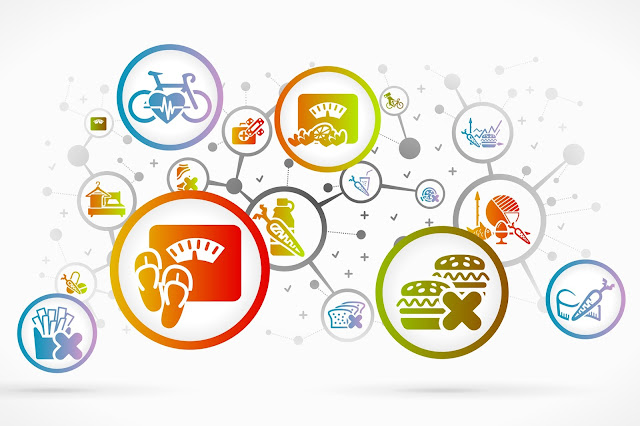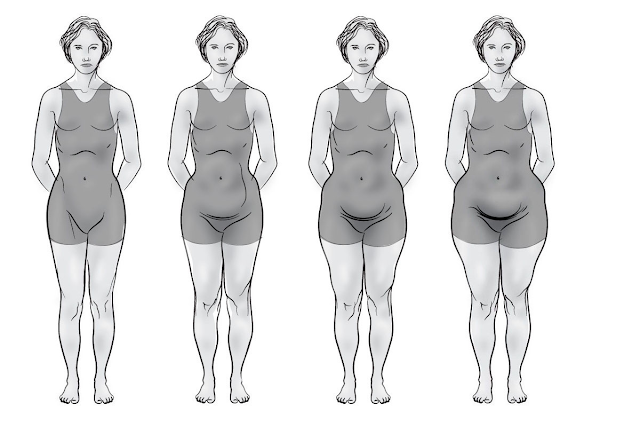How Busy People Lose Weight
Losing weight and maintaining a healthy weight is essential, but may be difficult especially if leading an extremely busy lifestyle. It seems that everyone and everything is pulling from every direction and there just doesn't seem to be enough time for anything, let alone serious weight loss. A busy schedule can still be plan for and include time and effort for weight loss.
Appearance is a key factor to overall success in business, the academic world, the political world and in just about any social situation. Excess weight can affect the way others perceive you and can even affect credibility and influence on others. Self image is also adversely affected by too much weight and that can affect all types of relationships from personal to professional. So, if losing weight and maintaining a trim figure is important in spite of a busy schedule, take a look at the following tips and get started today.
Establish a Plan For Weight Loss Under Stress
Every busy person knows the value of establishing a plan and setting goals to reach an objective. Stop putting this off and decide that today is the day things will begin to change. Resolve to lose weight slowly at a rate around one to two pounds a week, and set short–term goals along the way. Don't concentrate on losing 30 pounds, rather concentrate and focus on losing that first five or 10 pounds. Yes, keep an eye on the ultimate weight loss goal, but celebrate the small victories along the way as well.
Start with small, easily attainable goals and work up from there. It's not the occasional piece of birthday cake or slice of five-cheese pizza that derails attempts at weight loss. It's doing that over and over again for long periods of time. Research shows that unrealistic weight loss goals boost the risk of dropping out of a weight loss program and that unrealistic objectives are just not productive, according to WebMD.com,
"Setting Realistic Weight Goals" (accessed Feb 22, 2010). A small goal might be getting through a weekend without eating too much, or getting through a dinner party and not gorging on favorite hors d'oeuvres.
Taking Time to Think About Food
One of the biggest advantages to aiding weight loss is pre-determining the type and amount of foods to be consumed every day. With a busy schedule it's easy to go with what's easiest and just not think about healthy eating and food options. Convenience is the lure of the fast food lifestyle but it comes with a cost – eating nutrient-poor foods with added sodium and fat. Think about what's in the food being put into the body before sitting down to a meal or rushing out to lunch for a quick bite.
A good place to start thinking about the foods eaten every day is to study the nutrition labels of each. These are available upon request at most restaurants or they can easily be acquired online with very little effort. DietFacts.com has a database of 514 fast food restaurants that lists the nutrition facts for every type of food offered. With tools like this so readily available, there's just no excuse for not knowing what is in food being eaten.
If current eating habits have brought on excess weight, then it's time to change eating habits. Rather than a cheeseburger and soda for lunch, try a sub sandwich made with lean meats and lots of veggies along with a bottle of water. Another helpful tip for planned healthy eating on a busy schedule is to pack a sack lunch each day. Pack a 400–calorie sandwich made with lean meat and maybe a side salad, some fruit or raw vegetables are also a good choice. A sack lunch eliminates the possibility of a fast food lunch and it saves money.
Lose Happy Hour and Lose Weight
Cutting back on the intake of
alcoholic beverages should be relatively easy and require the least amount of time and effort. Again, like the food intake, think about exactly what is being put into the body with these types of beverages. This could be as simple as just cutting back a little bit. Instead of two or three drinks at happy hour, just have one and nurse it along. Another option is to switch to a lighter version of a particular beverage. If controlling the number of drinks is a problem, volunteer to be the designated driver.
Cutting back on the number of alcoholic beverages is great, but don't forget about those high sugar sodas and those high calorie flavored coffee concoctions. Some of the so-called
"coffee" sold at these coffee houses are more fattening than a cheeseburger. A vanilla bean frappuccino with whipped cream weighs in at a whopping 500 calories, according to NaturalNews.com,
"Starbucks Serves up Fattening, High-Calorie Drinks Called Coffee" (accessed Feb 23, 2010).
A busy schedule does not justify drinking a 500 calorie coffee everyday if weight loss is a goal. Busy people can lose weight and still drink coffee, but not that particular coffee. Nutritionally, that sort of flavored coffee drink is more like ice cream. Sodas are no better, with the equivalent of 10 packets of sugar in a 12-ounce can, according to OneCanOfSoda.com,
"How Much Sugar is in One Can of Soda" (accessed Feb 22, 2010). Again, it's time to start thinking seriously about what is being put into the body.
Too Busy to Drink Water?
People with a busy schedule should calculate their
water intake using this simple formula: drink an eight ounce glass of water for every 25 pounds of body weight. That means if a person weighs 175 pounds, they should drink seven glasses of water per day. Remember to drink water all throughout the day, not all at once.
Drinking more water helps the liver to remove impurities in the body because the kidneys are now getting plenty of water to function properly. Because a lot of fat is metabolized in the liver, and if there is a shortage of water, the liver has to work harder to make up for what the kidneys aren't doing. More water means more the liver is able metabolize fat more easily, and store less fat which leads to
weight loss.
As with any radical changes in diet or exercise, always consult a health care professional, nutritionist, or doctor before starting any diet, exercise, or weight loss plan. This article is for informational purposes only. The information provided herein is of a general nature and should not be substituted as advice from a qualified professional.

































0 comments: